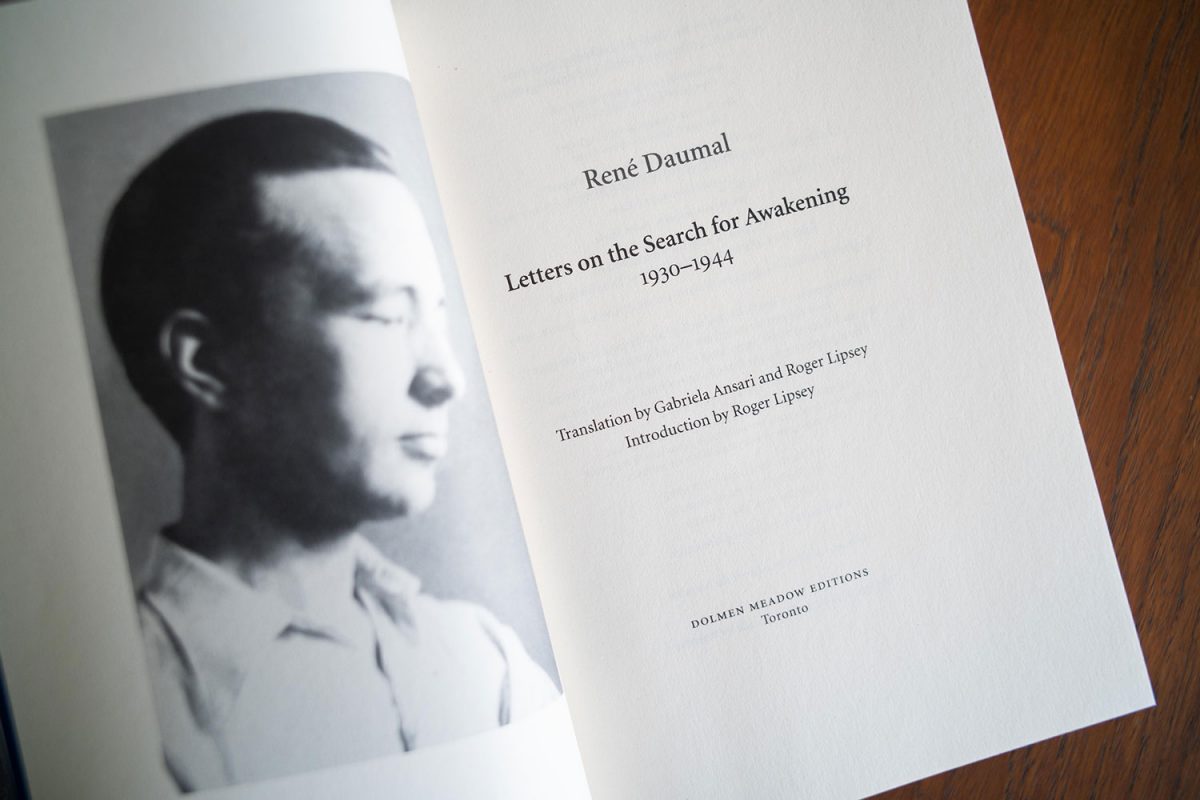René Daumal. Letters on the Search for Awakening: 1930 – 1944
Translated by Gabriela Ansari and Roger Lipsey
With an introduction by Roger Lipsey
(Dolmen Meadow Editions, 2010)

René Daumal has been for me—and for many others—a companion for decades. He is hard to find, especially in the English-speaking world, but once found hard to forget. The point of entry to his writings is his unfinished novel, Mount Analogue, preferably (if you can find it) in the incomparable translation by Roger Shattuck. Better still in Daumal’s French, but that doesn’t matter—Shattuck captured both letter and spirit. The novel remained unfinished because of the adverse and ultimately fatal circumstances facing Daumal. In his later years, which weren’t later at all—he died at the age of 36—he was suffering from TB at a time when resources and medical care were scarce under the Nazi Occupation. Enough food was a struggle, enough coal or timber to warm a room was a struggle.
He was one of those, rare, who matured quickly as an artist. His later works are classic in the way that French literature can be classic: lucid in thought and language, discreetly measured and heard, with a wild sense of humor in the spirit of Alfred Jarry and François Rabelais, with deep seriousness conveyed as if secrets of life are best shared in a whisper.
Daumal was an intellectual prodigy. With his high school buddies—some of whom became well known authors—he started a literary review that attracted the attention of writers and editors at the top of French literary life. Drawn to Asian thought in his teen years, he taught himself Sanskrit in order to read the Indian classics in the original and went on to write essays on Indian scripture and the seminal texts underlying theater and dance. He was too daring. He experimented with a dangerous anesthetic to look, if possible, beyond this world: an early and perilous adventure vividly recounted in another of his great pieces, “A Decisive Experience.” And one day in 1930 he met Alexandre de Salzmann in a Left Bank café. Providence or chance, the encounter was a turning point.
De Salzmann was a pupil of G. I. Gurdjieff (you’ll find him in my book Gurdjieff Reconsidered), no longer close to Gurdjieff at that time but a brilliant exponent of Gurdjieff’s teaching. They met often. After de Salzmann’s death (again, TB…) in 1934, Daumal continued his engagement with the Gurdjieff teaching in the circle of Jeanne de Salzmann, who introduced Daumal to Gurdjieff in 1938. Insofar as his health permitted, Daumal and his American wife Vera saw much of Gurdjieff.
Among Daumal’s wartime writings, don’t miss his “Holy War,” a prose poem of considerable length—a perfect thing expressing elements of the Gurdjieff teaching as lived in a way that is simultaneously colorful and austere.
Gabriela Ansari and I recognized the need in English for a selection from Daumal’s correspondence, focused on the theme that mattered most to him: the search for awakening.